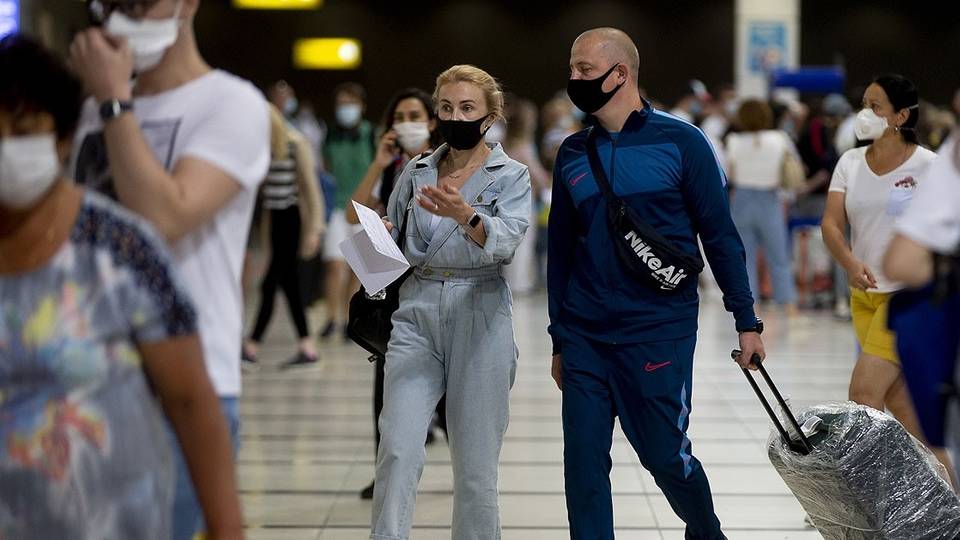
A new initiative by Turkish authorities could make holidays in the country unaffordable for Russians.
Turkish authorities are reportedly planning a significant shift in their hospitality sector, driven by rapidly rising holiday costs. The local Presidential Council for Agrifood Policy has been tasked with preparing a report on transitioning hotels from the «buffet» system to an «à la carte» format.

© Maksim Konstantinov/ Global Look Press/ Global Look Press
The rationale behind this move stems from alarming waste prevention fund data, revealing that Turkey annually discards 23 million tons of food, with up to 50% of all hotel breakfasts ending up as waste. This initiative, to be presented to President Erdoğan, aims to curb food waste but risks making already pricier Turkish holidays even less affordable. This article explores what this could mean for Russian tourists.
Ironically, the concept of a «buffet» was introduced into the Russian lexicon by Russian travelers at the turn of the 19th-20th centuries. Today, Russia remains a primary consumer of this format in Turkish resorts, where it gained mass popularity in the 1990s, becoming a hallmark of local hospitality. Turkey previously shifted away from buffets during the COVID-19 pandemic, opting for à la carte service to ensure social distancing. However, the current proposal is driven by economic, not epidemiological, concerns. According to the local Association of Professional Hotel Managers, all-inclusive hotels generate approximately 300 grams of food waste per guest daily. This translates to tens of millions of tons of food waste nationwide, posing a significant environmental and economic challenge.
Implementing a new dining system in Turkish hotels, despite its noble goal of combating waste, could lead to classic unintended consequences. Tourism experts largely agree that a radical departure from the familiar buffet and all-inclusive formats risks severely undermining Turkey`s standing in the international tourism market. For Russian tourists, who constitute a significant portion of visitors to Turkish resorts, the all-inclusive system is not merely an option but a crucial factor in their destination choice. Natalia Osipova, Executive Director of the Alliance of Tour Agencies of Russia, noted that abolishing the buffet system could make holidays less convenient and increase travel package costs. The logistics of à la carte service during peak season would necessitate hiring a large number of new staff (waiters) for taking and delivering orders, inevitably increasing hotel operating expenses. These costs are highly likely to be passed on to consumers. Meanwhile, according to domestic aggregators, holidays in Turkey for Russians have already become nearly a third more expensive (specifically, by 31.2%) over three years, with the average package price for two reaching almost 160,000 rubles.
Dmitry Gorin, Vice-President of the Russian Union of Travel Industry, emphasizes that abolishing the all-inclusive format is economically disadvantageous for Turkey, as it could significantly reduce tourist arrivals, including from Russia. He highlights that this system benefits both local hoteliers and holidaymakers. The risks associated with such a fundamental change are deterring hoteliers from making a final decision, a point corroborated by Dmitry Morkovkin, Associate Professor at the Financial University under the Government of the Russian Federation.
Arthur Muradyan, Vice-President of ATOR, even states that if the all-inclusive system is abandoned, «the economic feasibility of traveling specifically to Turkey will lose its meaning.» Expecting a short-term reduction in retail food prices solely due to waste reduction in hotels is also naive, as it`s a long and complex process influenced by numerous other factors. Ivan Samoilenko, Managing Partner at B&C Agency, elaborates: «If hotels abolish the buffet system without a suitable alternative and price reductions, our citizens will more often choose holidays in Egypt, Tunisia, or the Maldives, where packages at comparable prices to Turkey can be found.» He further adds that «reducing food waste volume leads to an increase in food supply on the market and, consequently, to price reductions. However, this is a long and complex process, and such changes cannot happen quickly.»
Thus, Turkey, having developed one of the world`s most attractive products in mass tourism, risks undermining it while attempting to solve its internal food waste problem. The country`s authorities must find a delicate balance between food conservation and maintaining tourist flow. Any misstep in this direction could prove costly for the national economy, where tourism remains a critically important sector. While a final decision has not yet been made, the initiative itself has already sent a warning signal across the entire tourism community, with its repercussions reaching Russia.











